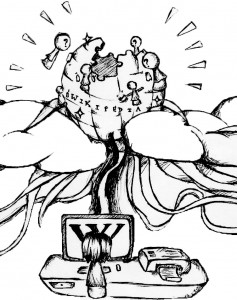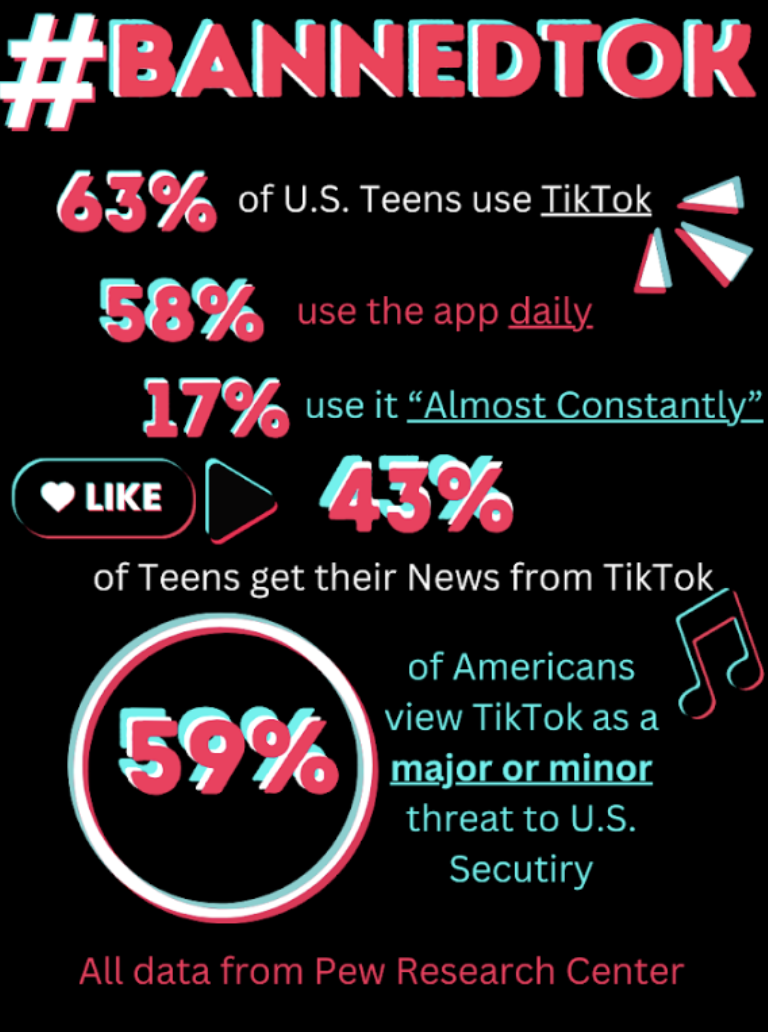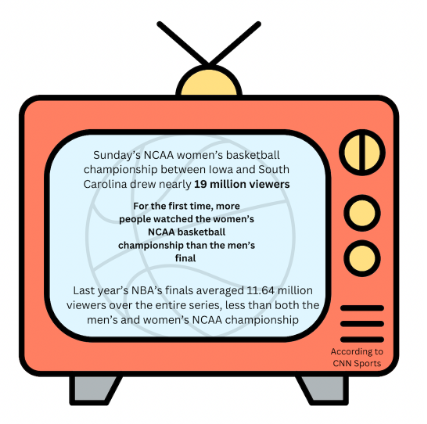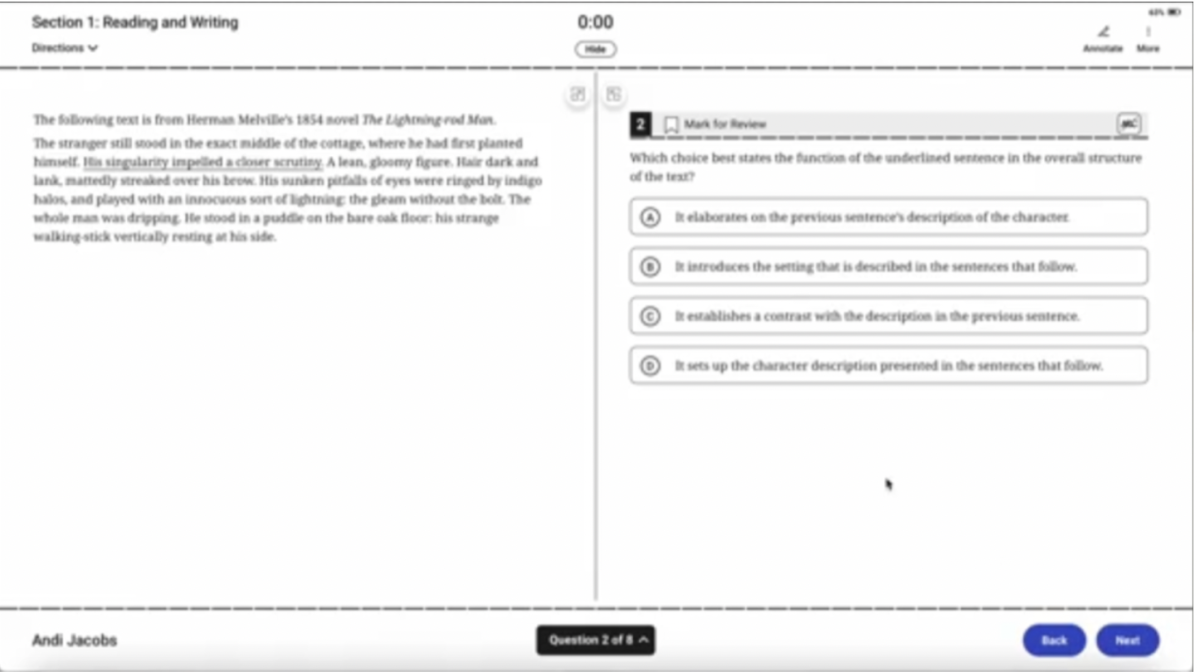
It’s fast. It’s easy. It’s free. Wikipedia is the monster of all encyclopedias.
Since its creation in 2001, Wikipedia has gained popularity, as it has roughly 684 million page views each year. Mostpopularwebsites.net says it is the seventh most visited website in the world. It’s no surprise. The website is accessible, clear, comprehensive, and concise; it’s a student’s dream.
Even so, amidst all its fans lies a group not too fond of the Wikipedia fad: teachers.
Many schools, including Staples, generally do not allow Wikipedia to be used as a research source in projects. Teachers believe that Wikipedia articles have many faults and are unreliable and biased.
These accusations, however, are inconclusive and generalized. Teachers at Staples should permit the usage of Wikipedia as a research source.
This is not meant to be a stab at the judgment of teachers at Staples, nor that of teachers anywhere else in the nation. It is safe to say that Wikipedia has been blemished by vandalism, inaccuracies, and bias because anyone has the ability to edit it.
However, no encyclopedia, or any data source for that matter, is ever completely exempt from inaccuracies. For example, according to a 2008 study by “Nature Magazine,” when 50 Wikipedia and 50 Encyclopedia Britannica articles were reviewed for errors, it was found that while Wikipedia made up about 57 percent of a total of 285 errors between both sources, Encyclopedia Britannica made up about 43 percent.
Though Wikipedia did have more errors, Encyclopedia Britannica was not far behind. If Encyclopedia Britannica is considered a valid source despite all its errors, Wikipedia should be, too.
Many teachers at Staples also have issues with the fact that articles are frequently vandalized. Vandalism includes mass deletions of sections of articles, insertions of foul language and irrelevant information, and redirecting to offensive and unrelated links.
Depending on what day you access information, someone could have posted intentionally inaccurate or biased information, but it “looks” factual in the text of each entry,” said James D’Amico, the social studies department chair.
However, International Business Machines (IBM) looked into the history of articles about controversial topics on Wikipedia and stated that it had “discovered that most have, in fact, been vandalized at some point in their history. But we’ve also found that vandalism is usually repaired extremely quickly—so quickly that most users will never see its effects.”
IBM reported that most vandalism was fixed within two to three minutes of it being posted, and concluded that the “active Wikipedia community rapidly and effectively repairs most damage.” Clearly vandalism should not be an issue with the validity of Wikipedia since it is most often corrected so quickly.
Staples teachers also have an issue with the Wikipedias bias. It is true that allowing anyone to edit articles creates the risk of bias.
“I think that each entry is as biased as the people who submit information,” D’Amico said.
Nevertheless, students researching more controversial topics in which bias may be an issue should be allowed to look at both Wikipedia and other sources to compare information.
Plus, it is important for students to understand all known biases in a research paper to fully comprehend a topic, and using Wikipedia as a source would help facilitate this.
Besides the fact that criticisms of Wikipedia are not exactly accurate, allowing Wikipedia to be used as a research source comes with benefits.
Let’s face it: many Staples students use Wikipedia to research. Sometimes, they even use facts from Wikipedia and cite them from other sources. Instead of allowing this behavior to go unchecked, Staples teachers should allow Wikipedia to be used as a source. After all, most of the time the facts prove to be correct.
The fact that Wikipedia authors include both professionals and non-specialists allows Wikipedia articles to have the perfect balance of factual information and user-friendly language. Most of the time, databases and other research sources are so in-depth that they fail to give a brief, yet accurate, summary of an event. That’s not to say that these sources should be overlooked, but when a basic summary is needed, Wikipedia would be more ideal to use.
Though its ability to be continuously changed can lead to inaccuracies, Wikipedia also allows its readers to be updated with the most current information. IBM concluded after its study of Wikipedia that “Wikipedia and its audience must be viewed as a system in which constant change is a source of strength as well as weakness.”
Staples teachers constantly stress the importance of looking at a multitude of sources. Wikipedia, the mega-database of today, is one giant source that cannot be ignored.













































that guy • Jan 27, 2011 at 2:36 pm
greg your a dick pick on someone your own size and don’t demoralize high-school students, get a real job
that guy • Jan 27, 2011 at 2:36 pm
greg your a dick pick on someone your own size and don’t demoralize high-school students, get a real job
Billy • Jan 26, 2011 at 3:05 pm
what you’ve just said is one of the most insanely idiotic things I have ever heard. At no point in your rambling, incoherent response were you even close to anything that could be considered a rational thought. Everyone in this room is now dumber for having listened to it. I award you no points, and may God have mercy on your soul.
Billy • Jan 26, 2011 at 3:05 pm
what you’ve just said is one of the most insanely idiotic things I have ever heard. At no point in your rambling, incoherent response were you even close to anything that could be considered a rational thought. Everyone in this room is now dumber for having listened to it. I award you no points, and may God have mercy on your soul.
Jason O • Jan 26, 2011 at 2:35 pm
Gregory J Kohs, the fact that you would regurgitate the flawed rebuttal by Nicholas Carr to attack Wikipedia, without pointing out Carr’s particular, ahem, interest in rebutting the study as a member of the Editorial Board of Advisors of Encyclopedia Britannica, is covered in failsauce. Carr is hardly objective. How could he POSSIBLY STAND anyone thinking that his fancy Board position is at a place only slightly better than a place run by complete nobodies…. even if that’s the truth. Hah. Nature defended the study. The conclusion: Wikipedia is comparable to Britannica. Better? Maybe not yet. But it’s hilarious.
Funny, because you’ve got an interest in concealing the truth too. That “systemic study” you mention, I seem to recall seeing it and how the author was one Gregory Kohs. Why didn’t you mention that, I’d think you’d want to show off your OBVIOUS expertise. Of course, there is the fact that you, like Carr, are horribly biased. You’ve got every interest in writing that Wikipedia is wrong or bad, and making it seem more credible by wrapping it up in “systemic studies” and other claptrap. The butthurt from being banned from Wikipedia back in 2006 must be REALLY bad for you to still be trolling blogs out in 2011. I heard you were even doing your own Examiner.com blogflog and calling it “national news media”. One word: CRANK! 😀
Hey, sorry for outing you buddy, but I figured that with all this focus on wrong and stuff you’d be glad for the truth to come out. ↂ
Gregory J Kohs • Jan 25, 2011 at 10:44 pm
Caitlyn, the fact that you would regurgitate the flawed “Nature” (news site, not the journal) gimmick as support of Wikipedia, without pointing out (for example) Nicholas Carr’s extensive rebuttal to that so-called “study”, suggests to me exactly why high school students are generally not well-served by Wikipedia’s approach to inquiry and knowledge.
I can assure you that Encyclopedia Britannica has never published that a U.S. senator had “kinky sex adventures” in high school, as Wikipedia once published about an Alaskan senator. This wasn’t some quick, “drive-by” vandalism, either. It stood in Wikipedia for 135 hours, with over 3,000 people viewing it before someone finally bothered to “undo” the edit.
Indeed, a systematic study found that Wikipedia’s 100 articles about U.S. senators are not just wrong — but deliberately wrong — about 6.8% of the time. If you want to learn more, you can Google the keywords, wikipedia senators vandalism study.
If your teachers would rather you eat apples and whole-grain breads than wallow in delicious and popular Big Macs every day, would you counter their guidance by citing how delicious and popular McDonald’s food is?